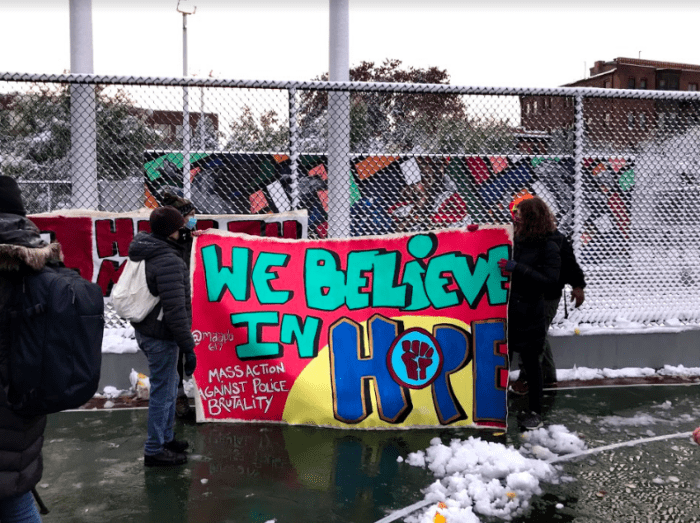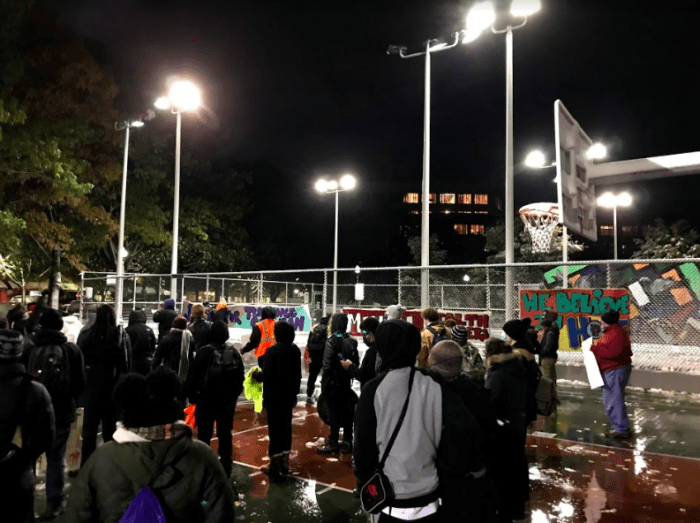
Participants who rallied in Peter’s Park demanded justice.
Terrence Coleman was 31-year-old Black man with paranoid schizophrenia, who was shot and killed by Boston police in 2016. The police had arrived at the home of his mother, Hope Coleman, after she had called an ambulance to take him to the hospital for medical purposes. The two officers involved in the shooting, officers Garrett Boyle and Kevin Finn, claimed that Terrence had a knife with him that appeared threatening. When Terrence advanced, Boyle fatally fired at him. Hope has said that she was present during the attack and that her son did not have a knife with him.
On October 30, the four-year anniversary of Coleman’s death, the Coleman family partnered together with Mass Action Against Police Brutality (MAAPB) to hold a demonstration at Peter’s Park, in the South End. In the aftermath of the tragedy, former Suffolk District Attorney Dan Conley did not file any charges against the officers. The rally was held to call upon District Attorney Rachael Rollins and ask her to prosecute Boyle and Finn. According to Brock Satter, co-founder of MAAPB, too many crimes of this nature have happened across the country, and the Coleman family, along with community members, are seeking justice.
“We know the history of the police, that they’re capable of lying,” said Satter. “And we know that in this instance, they have a motive to lie. The main fact that’s in dispute is whether or not Terrence had a knife. They claim he had a knife. Hope says she was there and that he didn’t. …She’s never changed her story.”
In 2018, Hope filed a federal civil rights lawsuit against the City of Boston, the Boston Police Department, and others for the wrongful death. To this day, the Coleman family has not received any financial compensation for their loss. At the demonstration, participants demanded monetary damages, as well as the renaming of Peter’s Park as Terrence Coleman Park. Satter said that it is critical for cases of police brutality to be opened up again, not only to protect the families involved, but to defend the rights of community members at large.
“The central problem is that when police commit crimes, they’re never prosecuted for it,” said Satter. “They’re never held accountable. …The importance of these cases is not just for these families, but all of society has a stake in the outcome.”

Shira Laucharoen is a reporter based in Boston. She currently serves as the assistant director of the Boston Institute for Nonprofit Journalism. In the past she has written for Sampan newspaper, The Somerville Times, Scout Magazine, Boston Magazine, and WBUR.

